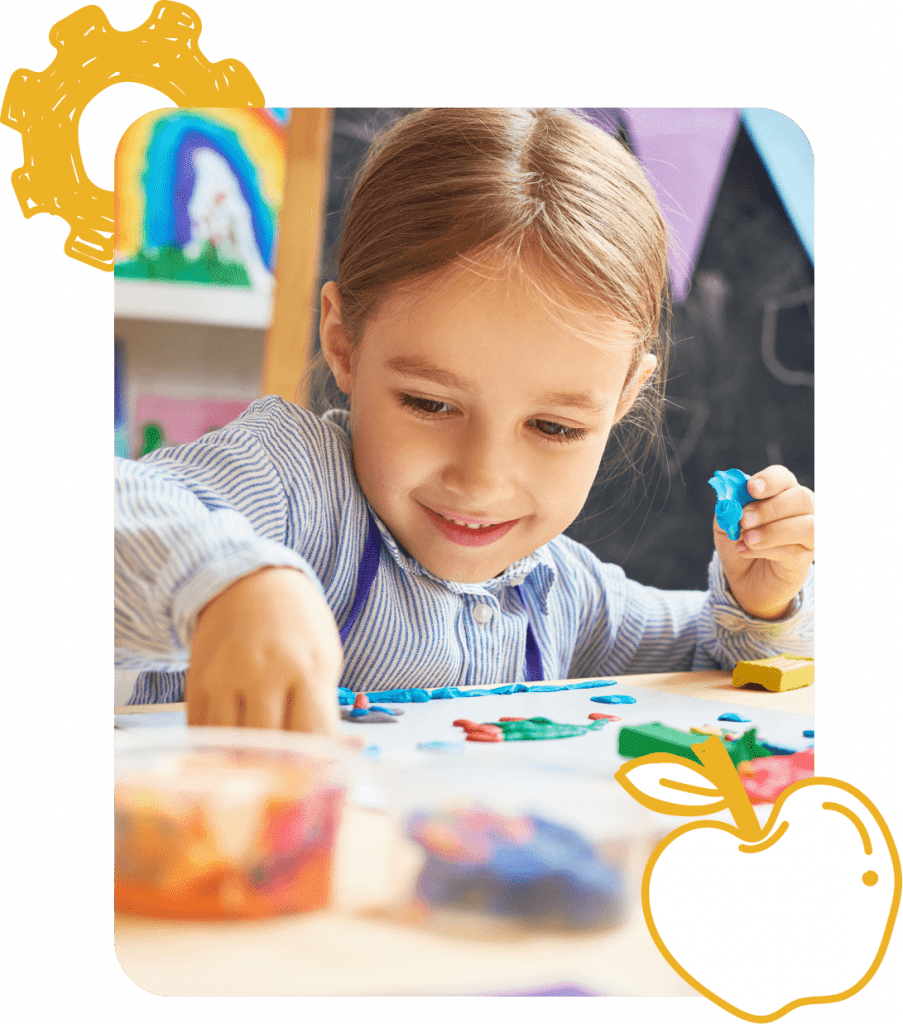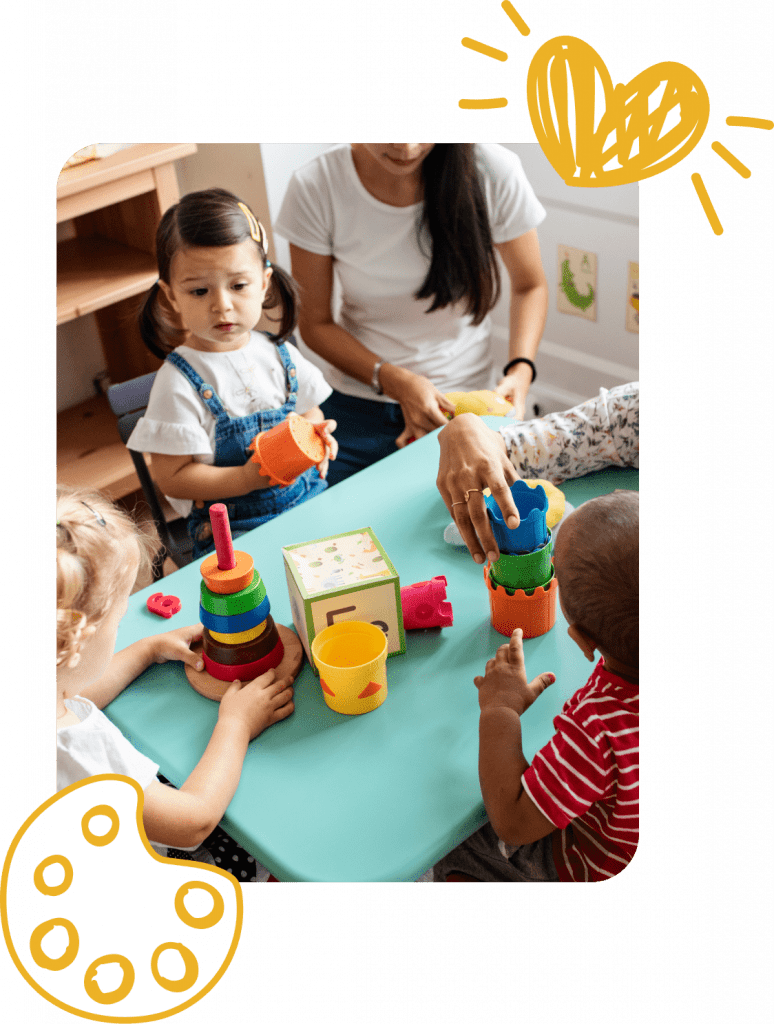About
Our Philosophy
A Note From Kristin
As the founder of Brighten Academy, it is my privilege to welcome you to our unique preschool! Students and parents who become part of our Brighten family understand that we do things differently here—every aspect of our program is purposefully in place to support our students, parents, and staff.
The concept for a kinder-prep preschool came from my experiences as a public-school teacher. Year after year, it seemed that my first graders who came to me experiencing academic struggles were children who lacked confidence in their abilities. They did not attempt, as often as other students, to question, explore, or take risks in learning.
After extensive reading and research, I found that during a child’s first five years of life, they learn and absorb at an incredible rate. From birth, they experience their environment and develop their senses, discovering the many ways they can interact with the people and things around them. They are building their self-esteem, as well as developing communication and problem-solving skills. When a child feels secure, they will take more chances and explore more freely—and this is when learning takes place! The experiences children have in the first five years of life set the foundation for their success, motivation, and confidence that they will carry with them through their academic careers and entire lives. I decided that my dream was to be a part of that. Thanks to a very caring, patient husband and wonderful community, Brighten Academy is the result of that dream. We hope that you will consider joining our preschool family!
Kristin Peterson
Owner & Director of Brighten Academy

Brighten Academy Offers…
- Schedule Flexibility
- Sibling Discount/Sibling Priority for Space Reservation
- Toilet Training
- Medication Administration upon Parent Authorization
- Daily Snacks and Lunch
Preschool Curriculum
Our research- and data-based academic programs focus on developing skills in the areas of reading, writing, math, science, and social studies, as well as life skills. All strategies and activities are assessment-driven and are at the developmental level of each child. The core curriculum involves small group instruction with learning centers, limited class sizes, and qualified instructors in every room.

Did you know?
“More about the human brain has been learned in the last twenty years than in the last hundred! Synapses in the brain, or neural connections, are formed as an infant experiences the world. The connections used regularly in everyday life become reinforced, or protected, and become part of the brain’s permanent “circuitry.” By age two, the number of synapses a toddler has is similar to that of an adult. By age three, the child has twice as many synapses as an adult. This large number is stable throughout the first ten years, but by adolescence, about half of these synapses have been discarded or “pruned.” The key question is: How does the brain know which synapses to keep and which ones to prune, or discard?
Early experience seems to be much more critical than first realized. Experiences activate neural pathways. Information, in the form of chemical signals, gets stored along these pathways. Repeated experiences strengthen specific pathways. A particular pathway takes on a “protected” status; it is not pruned because it has been repeatedly used. These protected, strong pathways remain into adulthood.
Brain research emphasizes the importance of quality experiences and responsive care for very young children. It indicates that these early experiences, if repeated, actually form stable, neural pathways. High-quality, responsive care must be provided in order for this critical process to occur.”
- Janet Gonzales-Mena and Dianne Widmeyer Eyer Infants, Toddlers, and Caregivers: A Curriculum of Respectful, Responsive Care and Education, 7th Edition, (New York: McGraw-Hill, 2007), pp. 94-96.